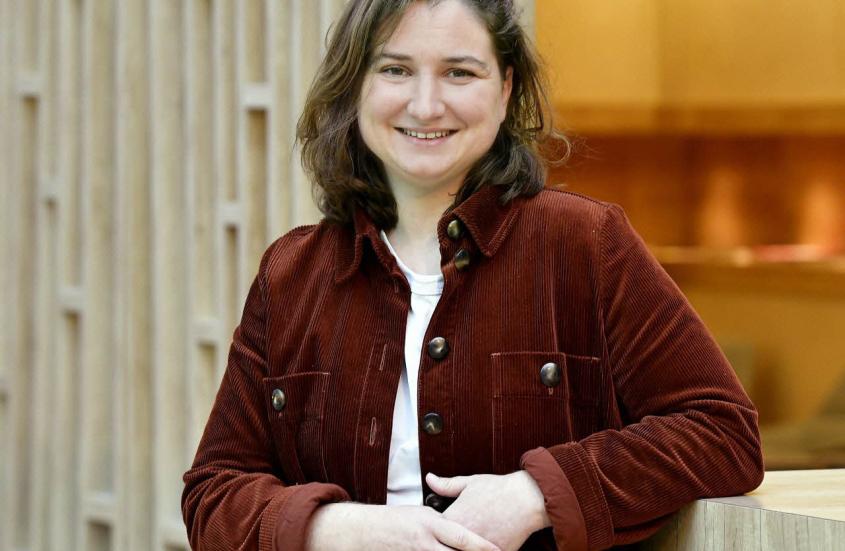Laure Delair, Deputy Director of Commitment at Macif, answers our questions
We are very glad to give the floor to Laure Delair, Deputy Director of Commitment at Macif. Macif, which is very committed to access to culture for people with disabilities, has been supporting the development of our Art immersion programme all over France since 2020.

Laure Delair, you are Deputy Director of Commitment at Macif, a major contributor to the insurance and social and solidarity economy in France.
Can you tell us about Macif's social initiatives?
Our commitment is part of our mission statement: ‘Protecting the present and enabling the future, for all of us and for future generations’. For over 60 years, Macif has been a socially responsible and committed company that has built up a lasting relationship of trust with its members and customers. It has placed solidarity at the heart of its core values and, throughout its history, has sought to act to enable everyone to achieve their life goals. Our solidarity actions are designed to protect our most vulnerable members, who may be disabled, for example, or suffer loss of employment or injury not covered by the mutual. Macif is also committed to local action in the regions, with its prevention initiatives on mobility, housing, health and budget education. We also work with the major players in the solidarity field, via our Diffuz platform, for example. All these initiatives respond to real needs, because they are the direct expression of the views of the mutual's delegates, who are members elected by the members to represent them.
For over 15 years, Macif has been committed to working alongside people with disabilities, with the aim of building a more inclusive society.
Why have you made the inclusion of people with disabilities your priority?
Our commitment was born in the field. In 2001, at a regional meeting, a delegate representing member-policyholders, who was very involved with deaf and hard-of-hearing people, made Macif aware of their difficulties in communicating with the mutual. This led to discussions that culminated in an initial pioneering initiative, launched in 2003, which included the creation of a website, sign language training for advisers and the introduction of adapted communication channels and dedicated numbers. The scheme was extended in 2004, marking the beginning of a more global commitment that gave rise to the Macif Egalis programme. This programme provides people with disabilities with accessible offers and services tailored to their specific needs. The aim is to offer maximum independence to those who need it most.
In 2004, you launched Egalis, a pioneering and innovative programme for people with disabilities and their families.
As part of this initiative, you are committed to promoting access to culture for children with disabilities by becoming a founding sponsor of our Art immersion programme in 2020. How does this programme embody your values?
When we met Culture pour l'Enfance, we were immediately attracted by the Art immersion programme, which offers disadvantaged children access to art through a comprehensive, long-term programme. The scheme helps to develop their knowledge and skills, and is deployed in a number of areas in conjunction with local structures. Accessibility, territoriality, co-construction, long-term: these are all principles that are also shared by Macif. When we joined forces with Culture pour l'Enfance, we made a joint commitment to develop the programme for children with disabilities, increasing the number of beneficiaries from less than 5% to 20%. We have kept our joint commitment, and I am delighted.
In 2023, your support enabled 1,559 children with disabilities to take part in the Art immersion programme, specially adapted for them.
What do you think are the benefits of artistic practice for this young audience with special educational needs?
Culture is a common good that enables everyone to look at their environment with kindness and curiosity. It helps us grow, opens us up to others and provides us with the cognitive tools we need to progress. While the methods used for children with disabilities, such as the Art immersion programme, are different, the benefits are the same for everyone. In the end, giving disabled children access to culture means working towards a fairer, more equitable and more caring society.
A special thank you to Laure Delair for her commitment to our cause, and of course to Macif, who have made it possible for us to offer our Art immersion project to as many disabled children as possible! We're very proud to have been able to develop and adapt our project for disabled children thanks to Macif.